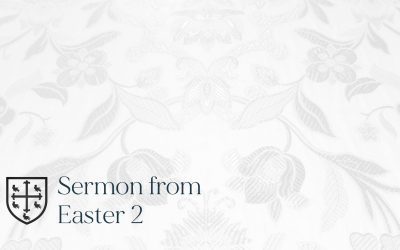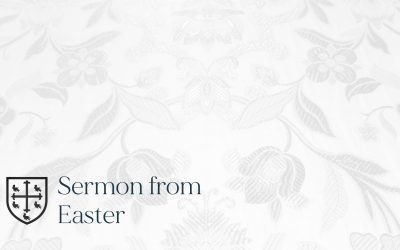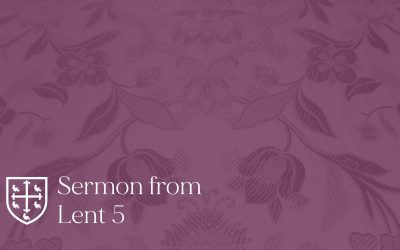4 Lent Year C 3/27/2022 Joshua 5:9-12; Psalm 32; 2 Corinthians 5:16-21; Luke 15:1-3, 11b-32
Rev. Mark A. Lafler
We are around the halfway mark of the season of Lent. Three weeks until Easter Sunday.
I hope your Lenten disciplines are going well.
Of course, they are not about guilt or shame…
The disciplines are about self-awareness through sacrifice…
They are about becoming closer to God through devotion in prayer and study…
If you have fallen behind or whatever… just pick it back up. Continue the discipline even if you have fumbled a bit… That’s okay…
Just re-start.
Lent is a season where we pay ever closer attention to the fact that we are broken and in need of a savior.
A time when we learn about our own weaknesses and shortcomings.
Our Gospel reading today goes with this theme… It is usually entitled the Prodigal Son…
1
The younger son wants to follow his own path and discovers that his decisions in life do not lead him into a good situation…
He squanders his money…
And when disaster hits…
He finds himself hungry and needy.
He discovers the brokenness of his choices…
He discovers that he is pretty needy and cannot save himself from his situation.
He decides to go back to his father…
He decides to confess…
To repent…
And his father welcomes him back…
Running to him he puts his arms around him and loves on him… His father shows him mercy…
His father lavishes him with gracious gifts.
This parable of our Lord shows the deep mercy of God… Our gracious Father is a God of forgiveness and redemption.
We find the same theme in our appointed Psalm… Psalm 32.
2
It is a penitential Psalm… And it begins with a beatitude:
Blessed is the one whose transgression is forgiven, whose sin is covered.
Blessed is the man against whom the Lord counts no iniquity, and in whose spirit there is no deceit.
Happy is the person whose sins are forgiven! The Psalmist expresses the joy, the freedom,the wonder that their sins are forgiven…
The Hebrew word for forgiven used here in the first verse of the Psalm is literally rendered “lifted up” as though you were removing a burden.
You see the load that we carry because of our sins…
With God’s forgiveness they have been lifted up off of us… The weight has been removed.
That is why there is such freedom and liberty in God’s forgiveness. The burden has been removed.
We can walk in the grace and mercy of God.
3
In another Psalm… David proclaimed:
…as far as the east is from the west,
so far has he removed our transgressions from us.
(Psalm 103.12)
The utter joy that comes from knowing that your sins have been forgiven.
That they will not be held against you.
That they have been removed from the slate…
The record has been cancelled.
God’s forgiveness is absolute.
God’s forgiveness is absolutely amazing.
And our psalmist describes how to experience this type of forgiveness because of their own experience.
The psalmist describes the difficulty of living with sin… Saying that they remained silent and because of holding it in… They describe the feeling as:
Like bones withering away…
Like groaning all day long…
4
Like a parched land in the heat of the day and there is not water to be found…
Sin and unforgiveness is like this…
It eats at us…
It stays ever before us in our mind… It wants our attention…
Sin wants to become our master.
But then the psalmist says something that is the key to God’s forgiveness.
In verse 6, the writer says:
I acknowledged my sin to you, and I did not cover my iniquity;
I said, “I will confess my transgressions to the Lord,” and you forgave the iniquity of my sin.
The psalmist acknowledged their sin. They recognized it as sin…
They made plain what it was…
It was contrary to the will of God.
5
And then the writer said:
I confessed my transgressions to the Lord.
Confession of sin is key to forgiveness… And true forgiveness is freedom.
The Swiss physician Paul Tournier said:
True liberty is not found without confession of our sins and the experience of divine forgiveness.
Confession is not done secretly… It is spoken out…
In fact, it is silence about sin that keeps sin powerful.
It is silence that keeps the weight of sin heavy in our soul.
The psalmist brings a contrast between the silence of his tongue and the confession of his mouth.
It is the speaking out… the confession that breaks the silence.
Often, we may confuse remorse or sorrow with confession and repentance…
But feeling bad for what we have done is not truly confessing our sins.
6
Confession is to be said to God… Confession is to be said outright. Many times, in the light of others… Perhaps with a clergy person…
As found in our Book of Common Prayer…
The season of Lent is a good time to practice confession of our sins. This is not just a Roman Catholic practice.
In fact, there is a rite for this in our prayer book on page 447.
Confession is a Christian practice… And it should be done more. Confession is good for the soul.
Secret remorse, counseling with the self, or intimations of guilt are not confession. The silence must be broken in the presence of the other. 1
Remorse is sorrow over being caught and the pain of consequences that follow.
Repentance is not being concerned for ourselves but having a contrite heart.
1 James L. Mays, Psalms, Interpretation (Louisville: John Knox Press, 1994), 147.
7
Confession is the expression of desire at the beginning of a repentant heart.
Confession is something we do at church… Before we receive Holy Eucharist…
We confess our sins, saying:
We confess that we have sinned against you In thought word and deed
By what we have done,
And by what we have left undone…
(BCP, 360)
This is a corporate confession…
We probably usually see it as a personal confession…
It may very well be that too…
But it is meant liturgically as a corporate confession.
Because collectively we are full of sin and do not live up to the calling of the people of God.
Collectively, culturally, in a community way we sin in many ways together that we might not even recognize.
8
There are plenty of times that I realize later in life that I have been the cause of injustice or hurt or pain because of my actions or inactions that I learned or assumed…
And in the same way we can do this collectively…
There are sins that we do or in our failure we do not do as the people of God.
Sin is very pervasive…
And when we gather together on the Lord’s Day to worship our Holy God…
We confess our sins together…
Corporate confession.
Rev. James W. Farwell a professor at Virginia Theological Seminary writes:
Confession [on Sunday] is not an aggregation of individuals expressing their sorrow for their individual failures at the same time, but a body of people expressing their sorrow for the church’s failures to live up to its calling. 2
2 James W. Farrell, The Liturgy Explained (New York: Morehouse Publishing, 2013), 32.
9
We certainly are to confess our own personal sin.
And we are to confess our sin as the people of God… the church.
When the church sins and fails…
As members of the church we all fall short of God’s calling.
Confession is the way we come to Christ too.
It was St. John the Baptist who declared that we should repent and believe the good news… this involves confession.
(Mark 1.15)
Confession of sin to God is confession of faith in God.
In Romans, St. Paul said:
…if you confess with your mouth that Jesus is Lord and believe in your heart that God raised him from the dead, you will be saved.
For with the heart one believes and is justified, and with the mouth one confesses and is saved.
(Romans 10.9-10)
This is why in our Baptismal vows we renounce sin and we proclaim Jesus Christ as our Lord and Savior…
10
We confess before God…
And we affirm our Baptismal Covenant.
And the good news is that when we come to God and confess our sins… He will forgive us.
Jesus said in the Gospel of John (6.37):
All that the Father gives me will come to me, and whoever comes to me I will never cast out.
St. John wrote in his first epistle (1.9):
If we confess our sins, he is faithful and just and will forgive us our sins and purify us from all unrighteousness.
It is no wonder the psalmist declares so boldly in our psalm:
Happy are they whose transgressions are forgiven, and whose sin is put away.
Happy are they to whom the LORD imputes no guilt, and in whose spirit there is no guile!
11
It is not wonder the psalmist sings out the last verse of our psalm:
Be glad, you righteous, and rejoice in the LORD; shout for joy, all who are true of heart.
It is a joyful thing to be forgiven by our Lord Jesus. Through his cross we can be truly forgiven…
…he was pierced for our transgressions;
he was crushed for our iniquities;
upon him was the chastisement that brought us peace,
and with his wounds we are healed.
(Isaiah 53.5)
Friends, if you have never experienced what it means to walk in this freedom of forgiveness…
I invite you to come talk with me after worship.
Because God wants to hug you like the father who welcomed back his prodigal son.
If you walk in the forgiveness of God…
And continually walk in the forgiveness of God… Then may we rejoice in his goodness…
12
And may we worship him…
The worship that is due his name.
As the Almighty God… The Wonderful Counselor, The Everlasting Father, The Prince of Peace. (Isaiah 9.6)
Who is the Holy One.
Let us worship Him today. Amen.
13




